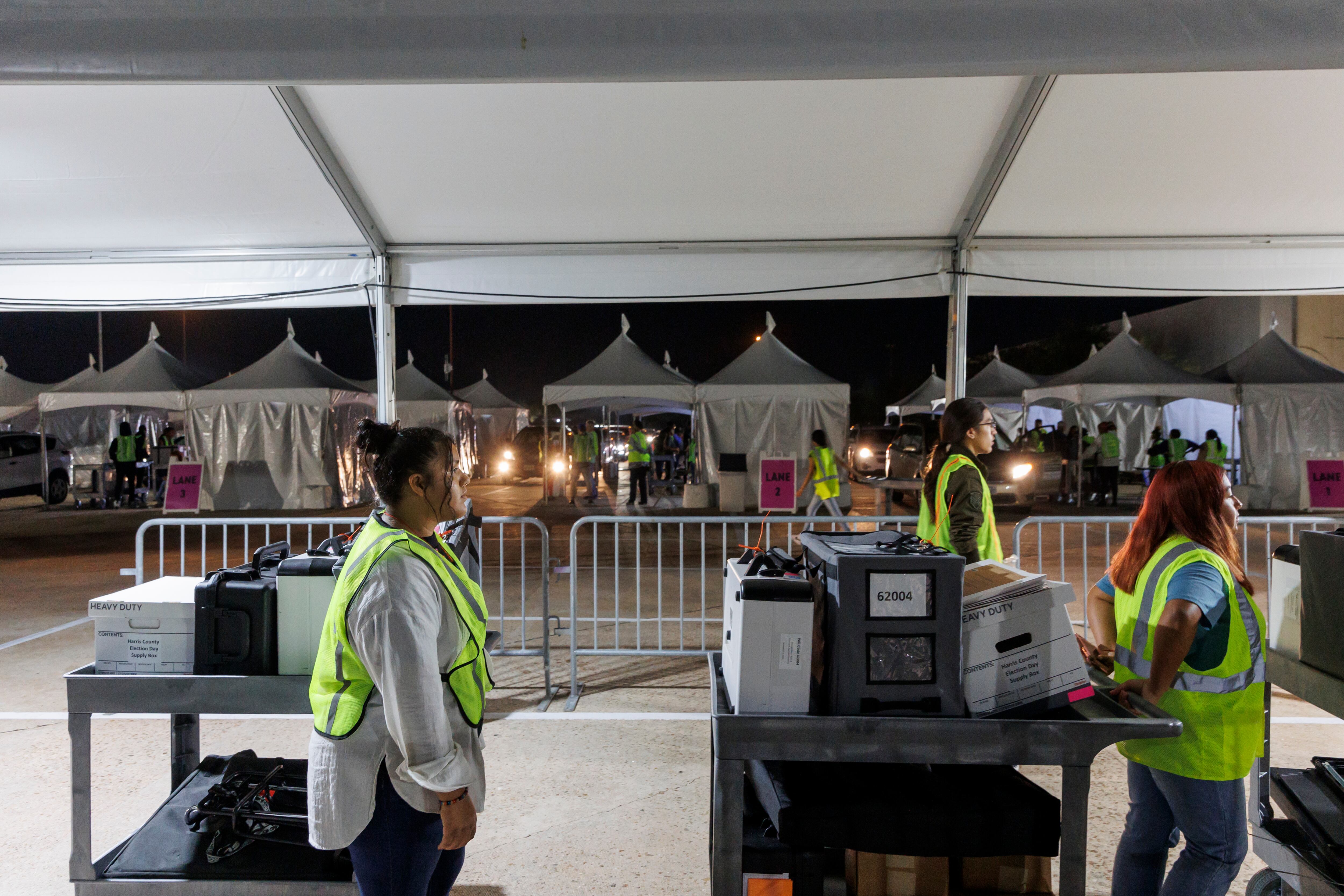This article was first published by The Texas Tribune, a nonprofit, nonpartisan media organization that informs Texans — and engages with them — about public policy, politics, government and statewide issues.
The Texas Supreme Court on Tuesday denied Harris County’s request to temporarily block a new law that eliminates the county’s elections administrator position.
Senate Bill 1750, passed by Republican lawmakers in May, is slated to go into effect Sept. 1, weeks before early voting starts for the November elections in the state’s largest county. The law requires Harris County to transfer all election-related duties from elections administrator Clifford Tatum, who was appointed just before the November 2022 elections, to the county clerk and the county tax assessor-collector.
Harris County Attorney Christian Menefee filed a lawsuit last month arguing that the law is unconstitutional because it singles out one county. Last week, Travis County District Judge Karin Crump granted a temporary injunction barring the law from taking effect. Crump ruled that the law was unconstitutional. She said it would lead to “inefficiencies, disorganization, confusion, office instability, and increased costs to Harris County.”
The Texas Supreme Court’s decision Tuesday clears the way for the law to take effect, putting county clerk Teneshia Hudspeth and tax assessor-collector Ann Harris Bennett in charge of the upcoming elections. The decision also set a date of Nov. 28 for oral arguments on the state’s appeal of the earlier trial court ruling in favor of Harris County.
Menefee said in a statement that the court had failed Harris County residents and that transferring elections away from the elections administrator will make it more difficult to run the November elections.
“I am disappointed that the Texas Supreme Court is quietly allowing the Legislature to illegally target Harris County, instead of considering the arguments and timely deciding whether Senate Bill 1750 violates the constitution,” Menefee said. “We first learned of today’s decision from the media, instead of from the court itself.”
Neither Hudspeth nor Bennett could immediately be reached for comment Tuesday.
Texas Republicans authored SB 1750 after controversy surrounding Harris County’s 2022 primary elections, which led to the resignation of the elections administrator at the time, Isabel Longoria. In November, paper ballot shortages and long wait times at several polling locations led several losing Republican candidates to seek a redo of the elections. Several of those lawsuits are still moving through the courts.
State Sen. Paul Bettencourt, R- Houston, who proposed SB 1750 and other election-related laws, said he was pleased with the Texas Supreme Court’s decision.
“This bill has always been about performance, not politics. I commend the Texas Supreme Court on their decision to restore voter trust, accountability and transparency in Harris County elections,” Bettencourt said.
Harris County established its elections administrator office in 2020. The majority of Texas’ 254 counties have appointed nonpartisan elections administrators.
Shannon Lackey, vice president of the Texas Association of Election Administrators, said having a nonpartisan elections administrator helps ensure elections run smoothly and fairly. She said transferring the election over to elected officials would put an unfair burden on already overworked officials.
“I would be very concerned about the quick turnaround to conduct this upcoming election,” Lackey said. “This is a full-time job.”
This article originally appeared in The Texas Tribune.
The Texas Tribune is a member-supported, nonpartisan newsroom informing and engaging Texans on state politics and policy. Learn more at texastribune.org.




